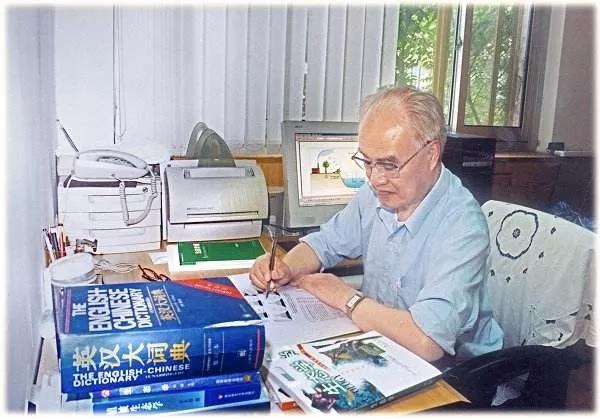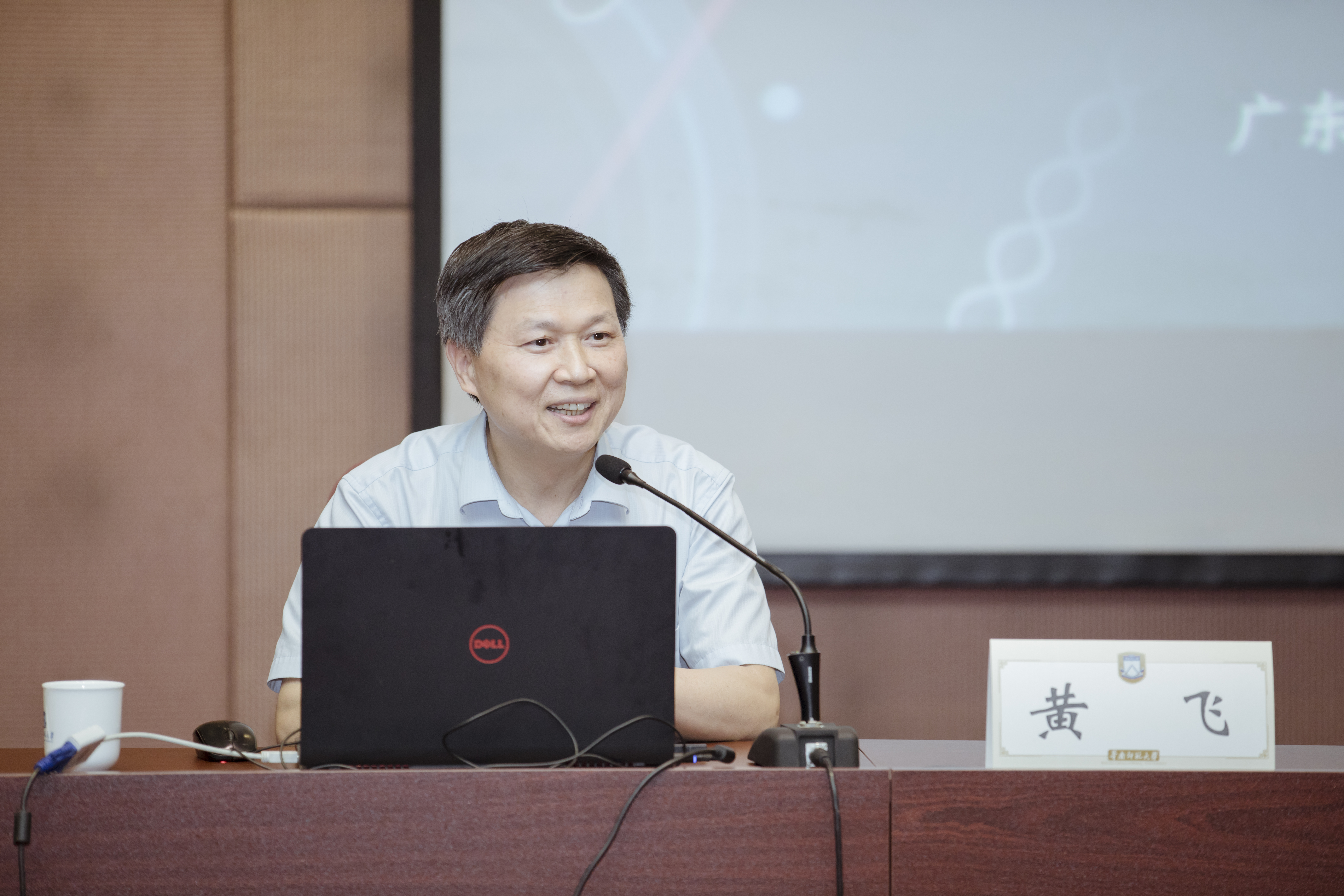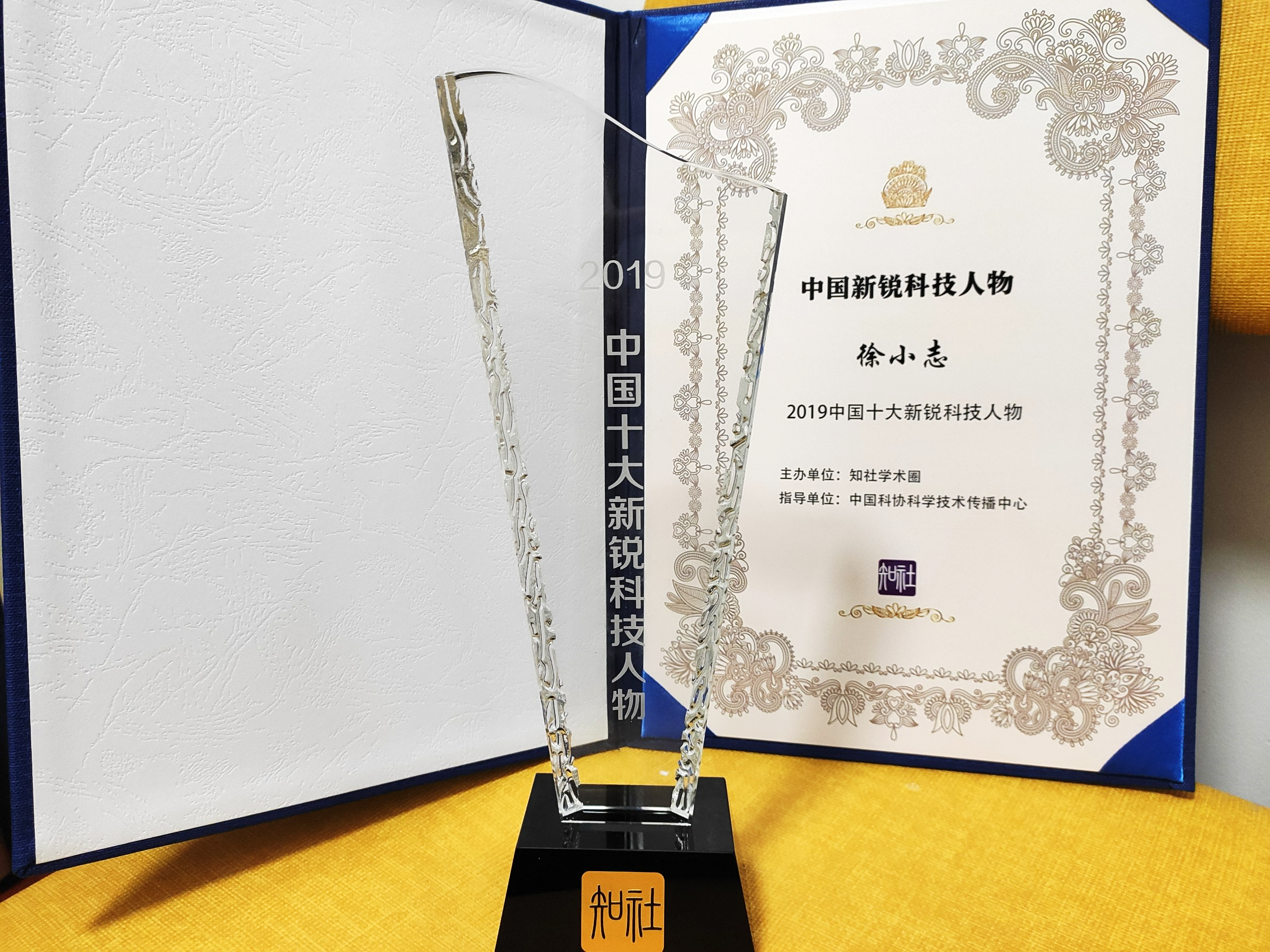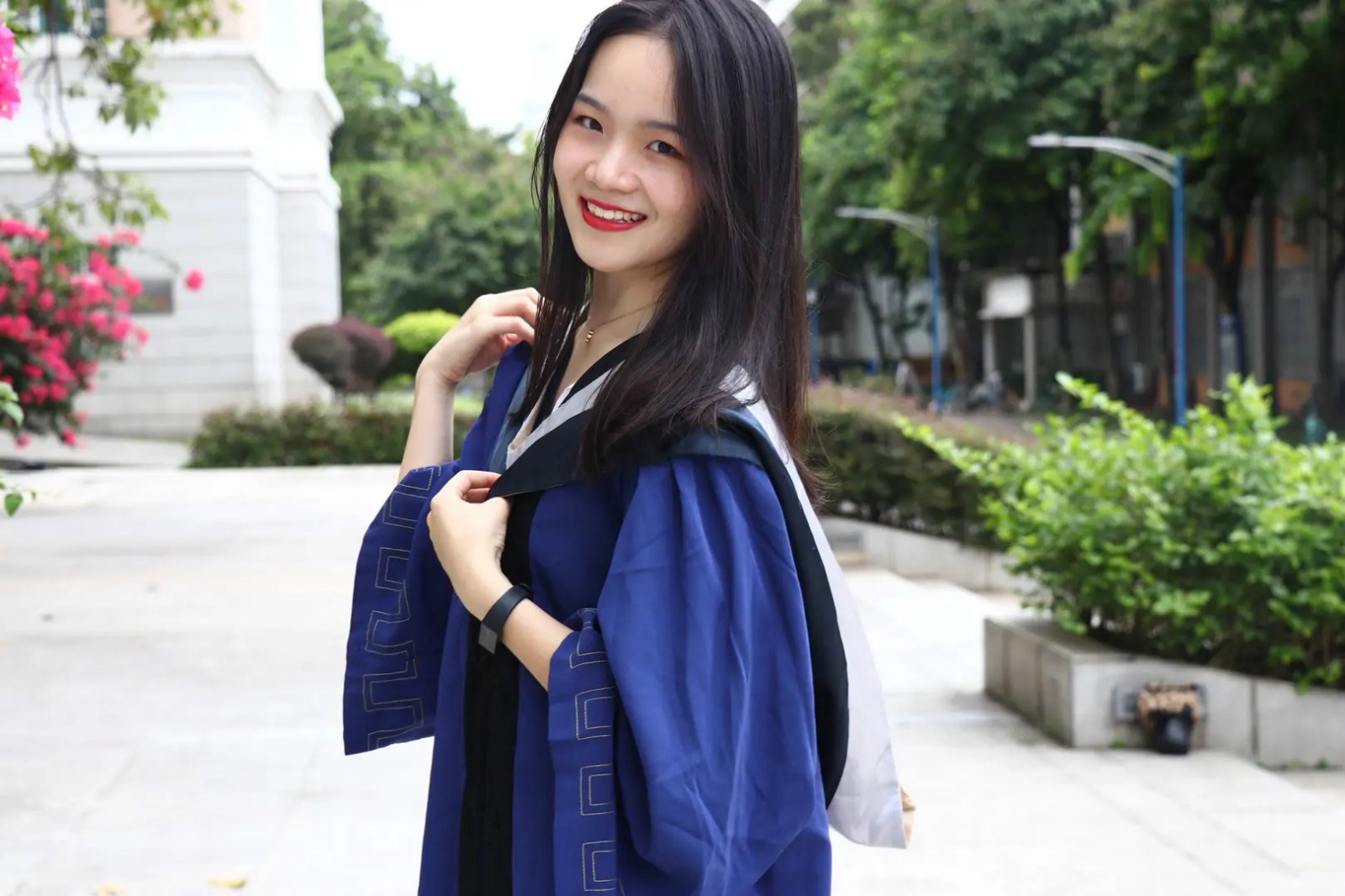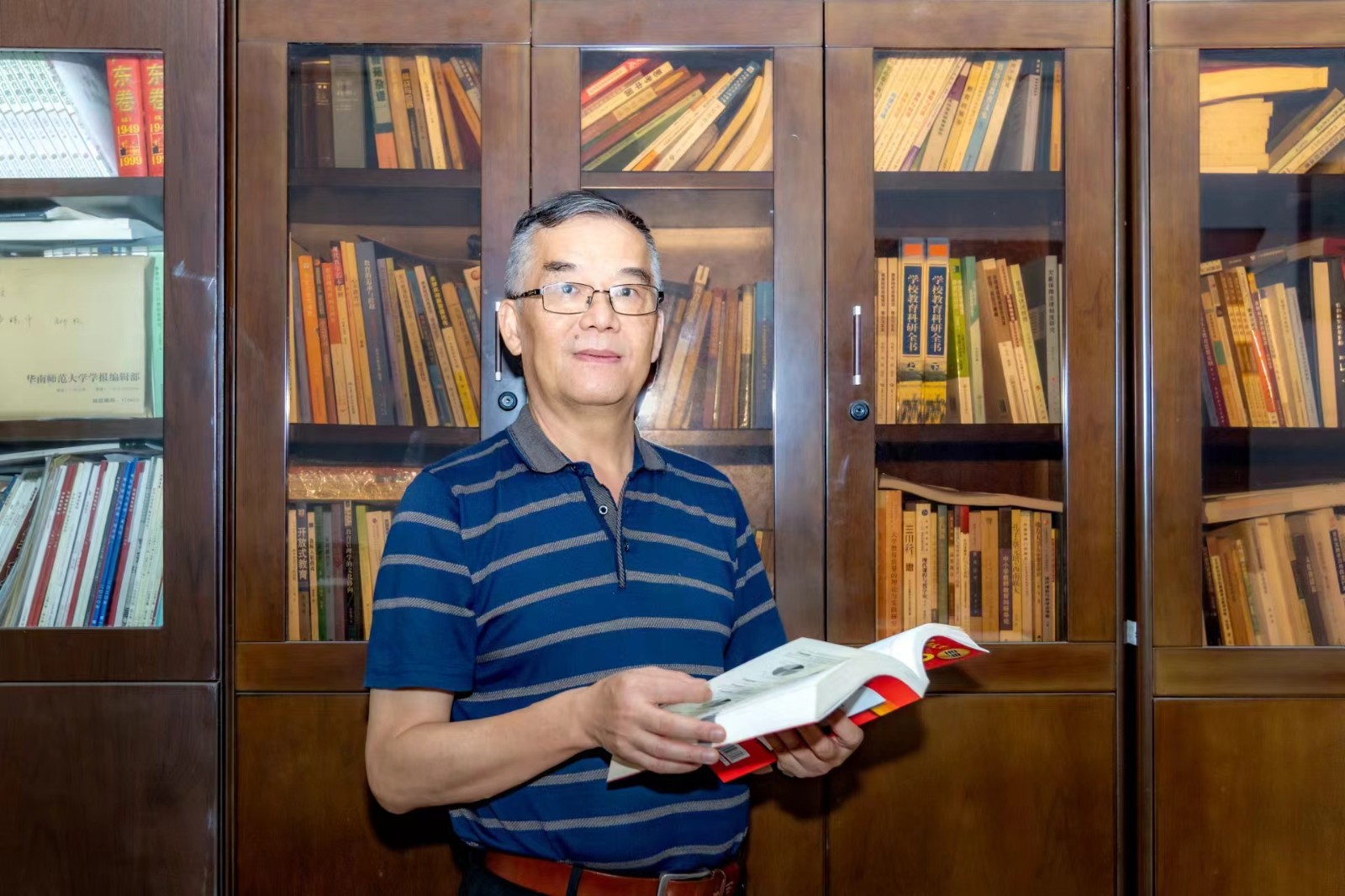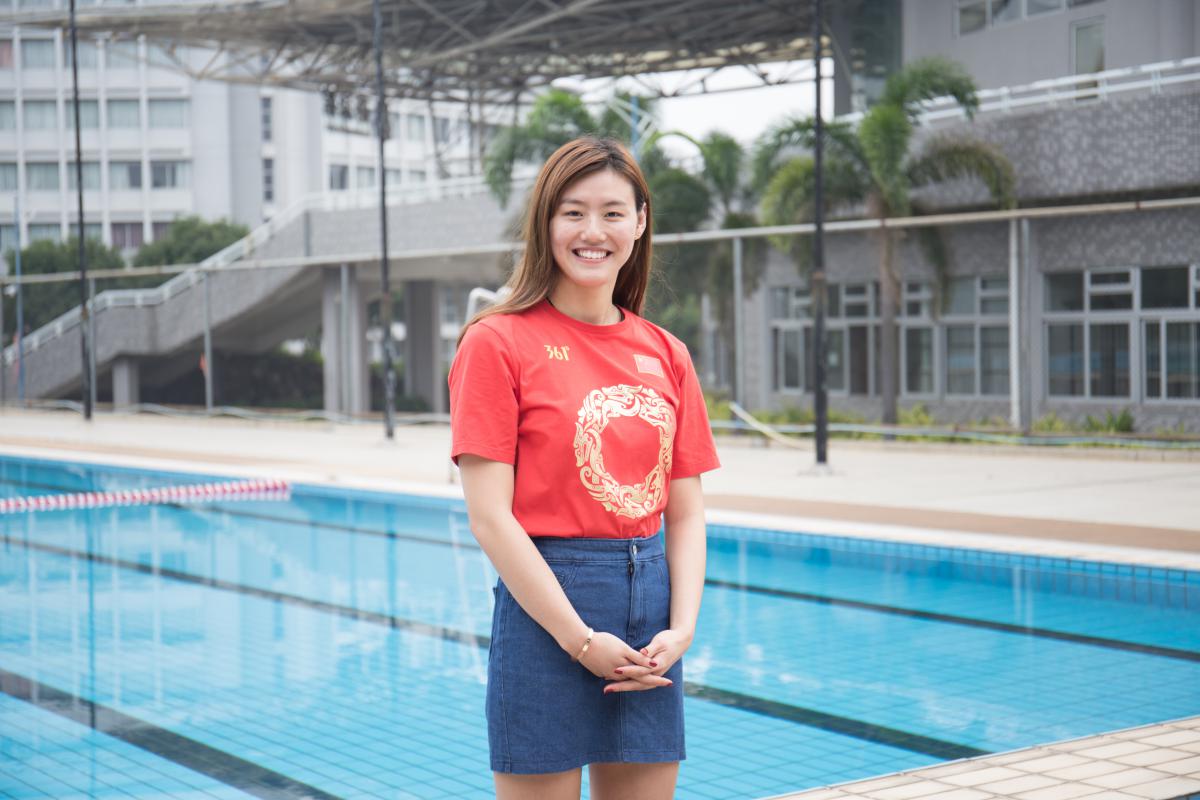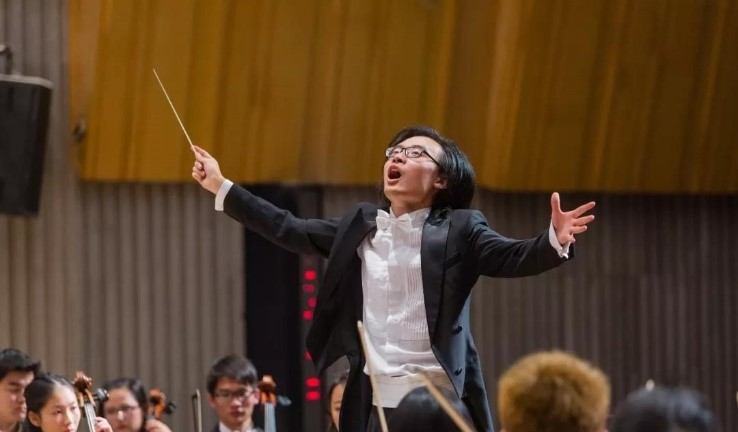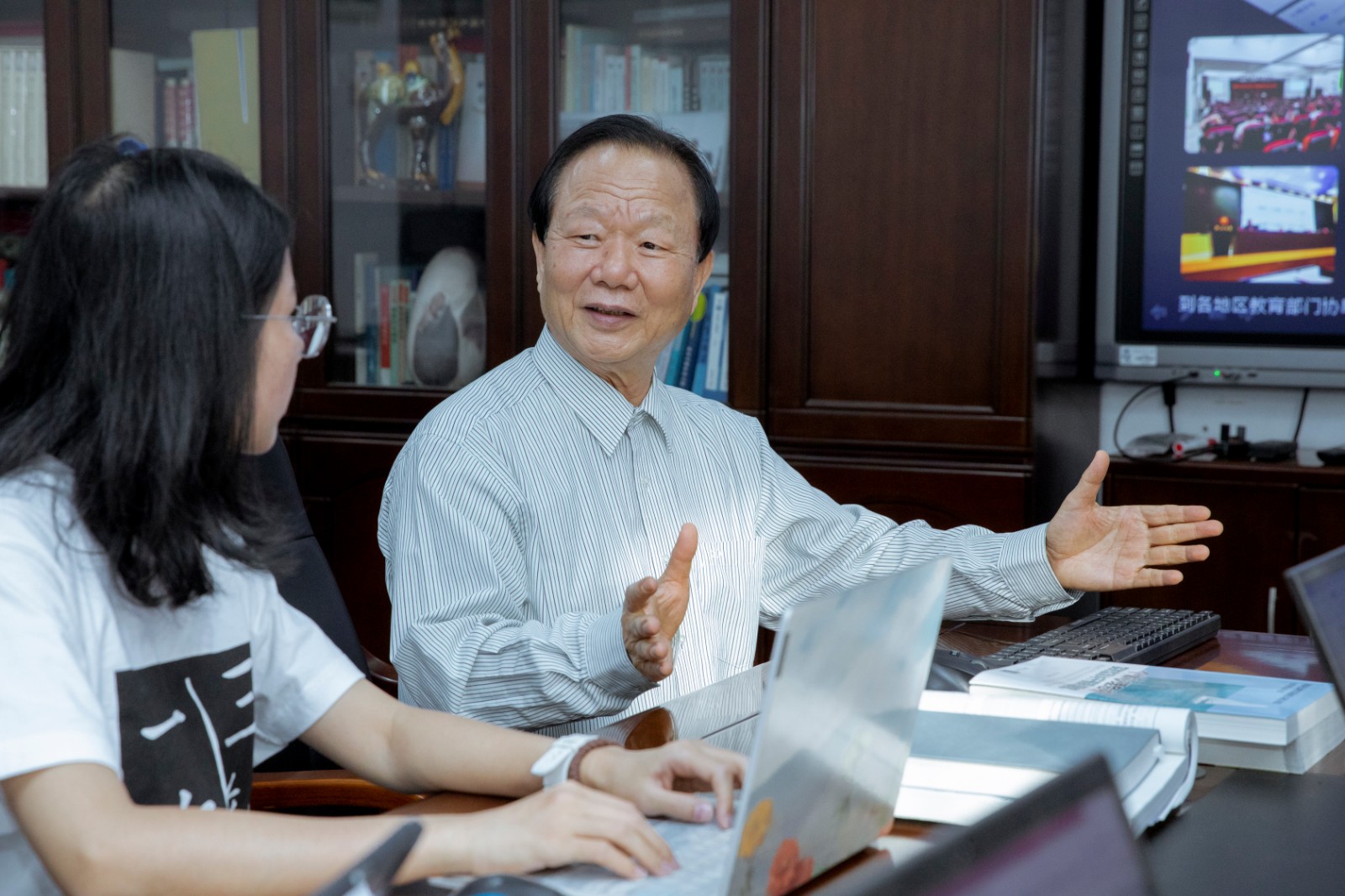
Likes
Every day around 5:30 p.m., you can see Professor Mo Lei, accompanied by several students, walking briskly along the track on playground at SCNU. This is a special teaching method jokingly called “talk-as-you-walk method” first conceived by Professor Mo Lei.
Mo Lei, the current academic leader of the School of Psychology of SCNU, has been devoted to teaching for 50 years and cultivated numerous talents in the field of psychology. Besides, he has also made great contributions to research in the field. With such achievements, he was granted with the Lifetime Achievement Award by the Chinese Psychological Society in 2018, the highest honor for psychologists in China, as an affirmation of his relentless teaching and research.
Initially, some of Mo’s students find it hard to adapt to “teach-as-you-walk” method. “Professor Mo walks fast, so it’s hard to keep up with him sometimes and talk at the same time,” Mo’s student Gaoyuan says. “But he usually slows down his pace unnoticeably when he realizes that we are a little out of breath.”

Professor Mo Lei (the second from the left) and several students are walking briskly along the track, practicing his "talk-as-you-walk method".
Mo Lei has developed the habit of talking while walking for a long time. He thinks it a great way to exercise and to keep brain active. Students are often shy, and few would have the courage to visit their professor in his office. The afternoon walk is a more casual way of contacting and communicating with the students. They find it easier and less intimidating to go over for a talk with their professor. It has proved to be a good way for Professor Mo to get to know his students, hear more about their difficulties in study or life. He answers their questions patiently and also shares his reflections on life with them.
Born in 1951, in Gaozhou, near Maoming in Guangdong province, Mo Lei grew up with both his mother and sister dedicated to education. At the age of 20, he started working as a teacher in a high school. It was the beginning of his lifelong teaching career.
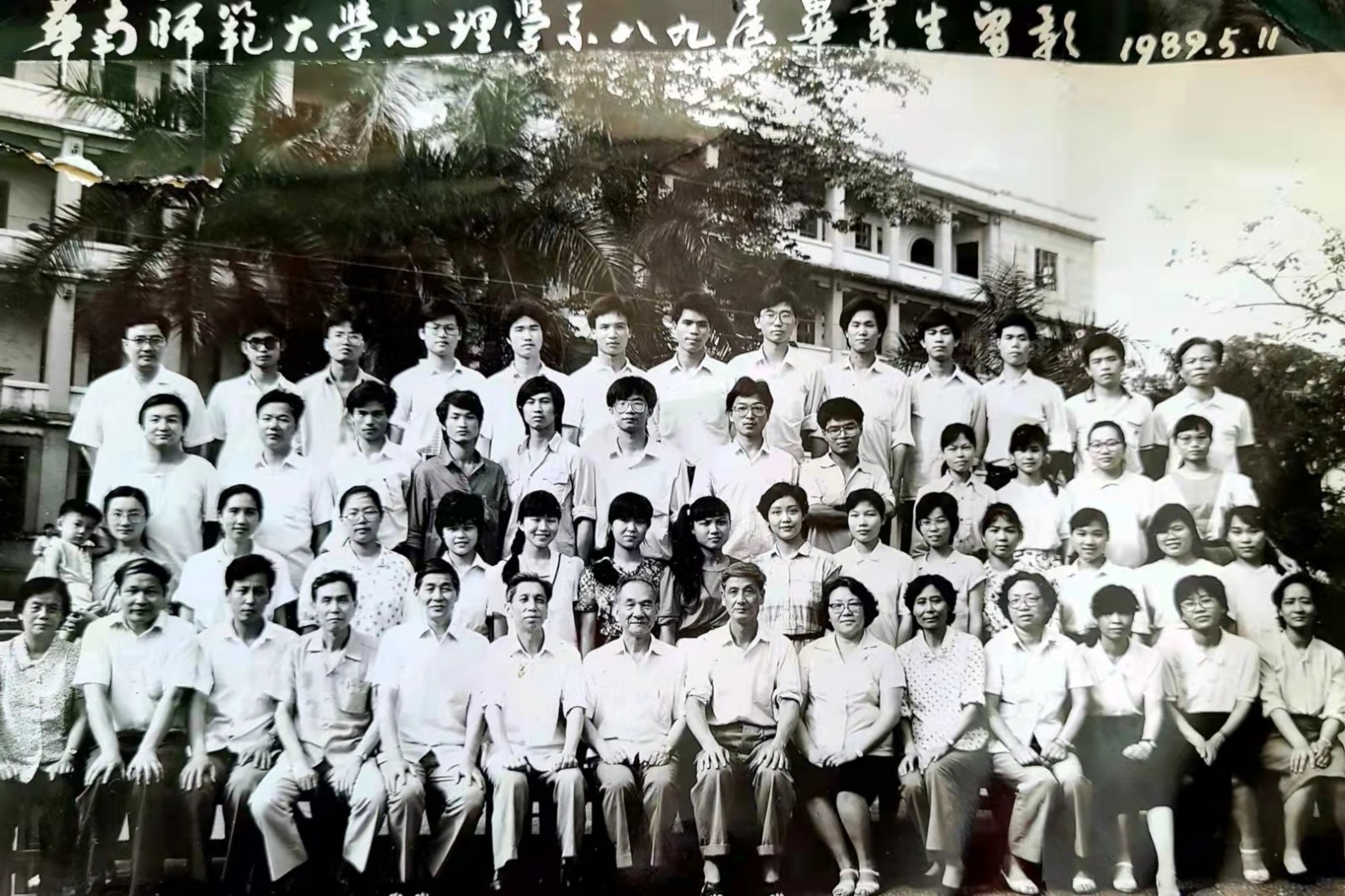
The 1989 graduation photo at the School of Psychology of SCNU with Mo Lei in the third row, the second from the left.
“I have never felt exhausted at any time in my career,” Mo Lei says with smile. During years of teaching, he has never used the exactly same PowerPoint for lecture. Before each class, he updates the latest content as research results and insights are constantly updated. “The content of my lectures reflects my research and thinking,” he says. Research and teaching complement each other, and to Professor Mo teaching is as rewarding as doing research. “I like my profession and enjoy working with my students,” Mo says.
Over the past 50 years, Mo has always retained his enthusiasm for teaching, influencing those around him with patience and generosity. “He often tells us that everyone has their own strengths and weaknesses. Likewise, everyone works at their own pace. So don’t worry of being left behind, even if you haven’t published a paper yet. Life is long and there is plenty of time,” his student Gao Ruixiang says.

Mo Lei, academic leader of the School of Psychology of SCNU.
Though Mo Lei is very tolerant of his students, he is serious about scientific research, always instructing students in person with a high sense of responsibility. “Once you start, you have to do your best” he always says. It’s routine for him to check students’ research papers word for word and add lots of notes on them to make sure that nothing goes wrong. “He attaches great importance to teaching his students in person,” Gao Ruixiang says.
Moreover, Mo encourages his students to be innovative in scientific study. He advocates the research method called “Three ones”, which means that students are required to read through at least one paper, then develop one hypothesis and then complete one study. Only when students fully understand the latest research published in the relevant field, and then read the literature with questions and curiosity in mind, can they acquire knowledge in a coherent and extended way.
To develop their questioning spirit, Mo organizes discussions about cutting-edge issues on the research frontiers for his students to discuss, question and expand new ideas every week. In his eyes, everyone is equal here, and students can also question the teacher. “Students should learn how to study and go beyond what has been achieved.” He hopes students to be at the cutting edge, to challenge authority, and to innovate.

Mo Lei in discussion with one of his students.
Beside the talk-as-you-walk method, Mo Lei has also developed teaching method called the Inverted Pyramid teaching method. He emphasizes that teachers should begin a lecture with an explanation of the course catalog to help students build a framework for the core content. The main contents of a course should be placed at the top of the pyramid structure. In this way, students will have a clear understanding of the overall knowledge of the curriculum. More importantly, they learn how to learn independently once they have a systematic picture of related disciplines.
As the leader of the discipline of psychology at SCNU, Mo Lei has developed a strategic vision of the national social development and social needs, committed to bringing the study of psychology from theoretical to the applied level. “Psychology should become a world-class applied discipline, oriented by the needs of national development, integrating technology to solve major problems, and make breakthroughs in fundamental research," he says.

The sending off ceremony of the team to the earthquake-struck area in Wenchuan led by Mo Lei (the fifth from the left).
When an earthquake hit Wenchuan, in western China in 2008, Mo Lei led a team of volunteers to the disaster areas to help with psychological relief work. More than 300 people were sent in 23 batches, to participate in the work, which lasted for five years. During the most serious first period of the COVID-19 pandemic in 2020, Mo Lei and his team were actively involved on the front line providing psychological relief support, helping those who suffered from mental stress caused by the pandemic.
This type of volunteer work helpsstudents of the School of Psychology develop a deeper understanding of the significance of psychiatry. The application of their knowledge may lay the foundation for their future development in research and work.
Over the past four decades, Mo Lei has witnessed the rapid development of the discipline of Psychology at SCNU. In the 1980s, SCNU was among the only five colleges and universities in the country with departments of psychology, and people knew little about it. As times went by, psychology and psychiatry began to play an increasingly important role in people’s lives, which also called for more study in this field. Mo Lei’s dedication to research in psychology has gradually attracted attention. Some psychologists even joked that “We hadn’t heard of psychology at SCNU’s until we met Mo Lei.”
In 2011, Mo Lei suddenly rose to fame by publishing three papers in a row as the lead author in the international top-level journal Proceedings of the National Academy of Sciences of the United States of America (PNAS). One of the articles, entitled Newly trained lexical categories produce lateralized categorical perception of color, was based on the hypothesis that color can effect a person's psychology. Prior to the publication of this study, research merely stopped at the conclusion that color is closely related to psychology. Mo Lei proved the causality between them, that is, color can promote one’s cognitive competence, tackling one of the international puzzles never be solved before.
Thanks to Mo Lei and his team’s dedication, the discipline of psychology at SCNU now ranks among the top 10% Chinese disciplines, and No. 2 in the Best Chinese Subjects rankings in 2018 according to the Shanghai Ranking, and has remained in the top three since.
Behind his achievements, Mo Lei has sacrificed countless time for work. “To make a real contribution, one has no weekends, or holiday breaks,” he says. His students see him as one who never stops, always ready to deal with multiple issues. His spirit of full commitment to his work also influences many colleagues and students around him, making a positive atmosphere of study and research at the school.
“I am not a person aiming at success for myself, but I am and will always keep fighting in pursuit of my dreams,” he says. “I’m willing to devote myself to psychological research for the rest of my life.”

Mo Lei (in the middle) with his students wearing his time saving slogan on their shirts.
Source from SCNU
Written by Yang Yi, Li Yusang, Li Xien, Li Xingfeng
Proofread by Edwin Baak
Edited by Li Jianru
What to read next:
